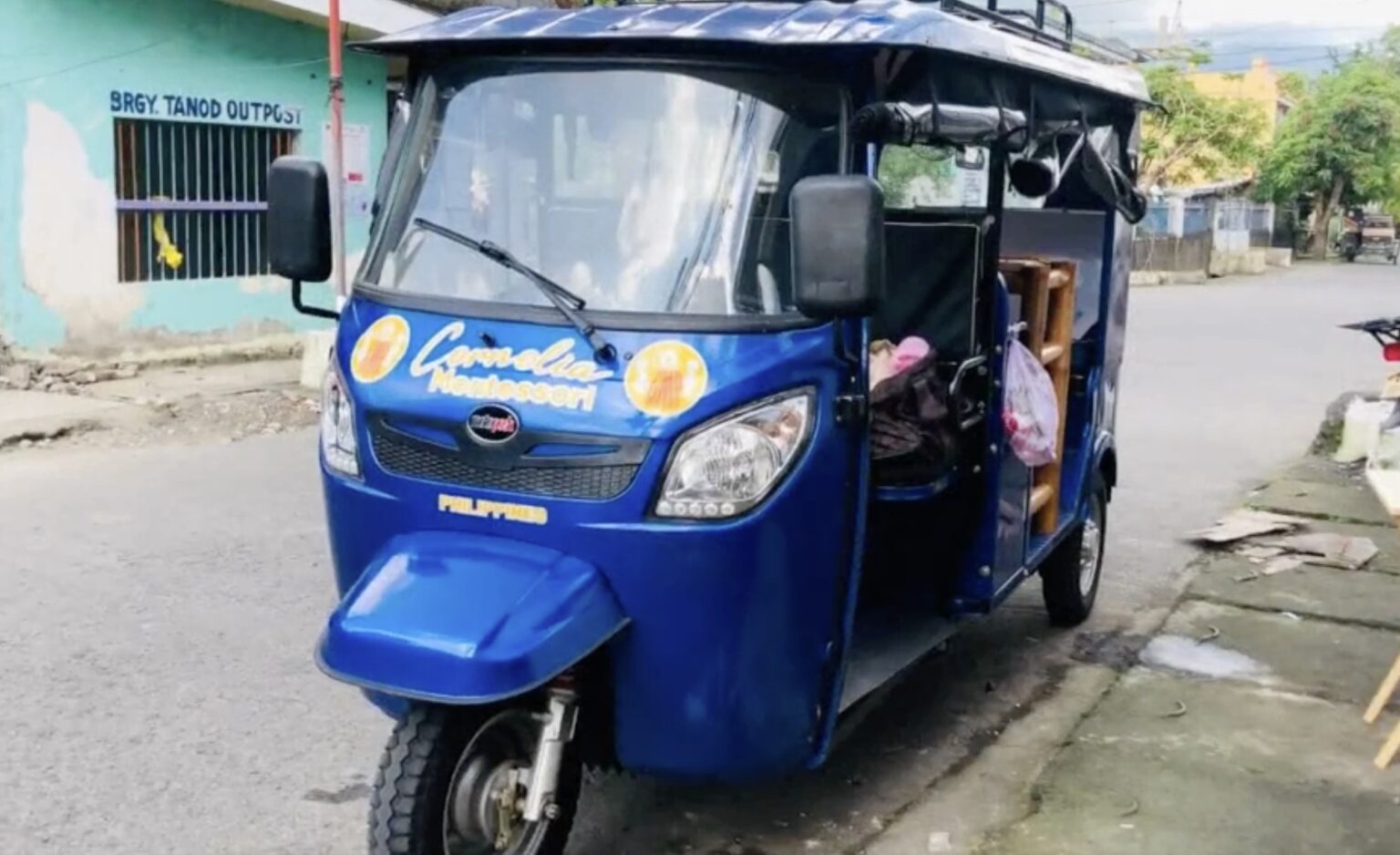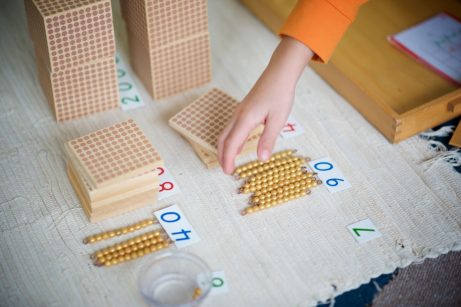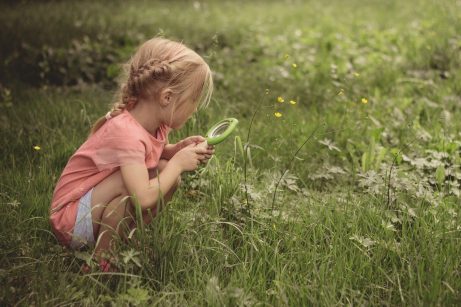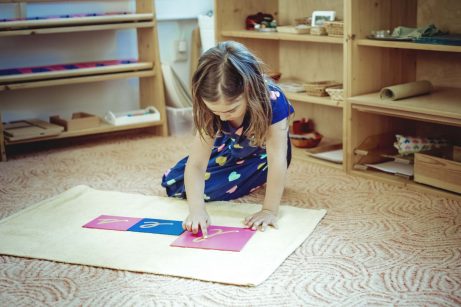Could a Mobile Montessori Classroom Work? Here’s What Happened in the Philippines

When we imagine a Montessori classroom, it’s often a peaceful indoor space-filled with natural light, soft shelves, and carefully prepared materials. But what if that classroom rolled on three wheels through narrow streets, parked in front of homes, and opened its doors to children where they lived?
This is not a thought experiment. It’s a story born from real resilience, inspired by a community in the Philippines, and deeply rooted in Montessori values.
Reimagining the Environment
Montessori emphasized the importance of the prepared environment, but never confined it to four walls. The essence lies not in the place itself, but in its intention. What happens when that intention-along with pink cubes, sandpaper letters, and practical life trays – travels to the child, rather than the other way around?
During a COVID time when much of the world was closed off, one educator opened up new paths-literally-by converting a tricycle into a mobile Montessori classroom. It wasn’t just an act of creativity. It was a statement of possibility.
The Classroom That Came to You
Equipped with a bamboo shelf, language materials, math tools, and the spirit of connection, this mobile classroom wove through towns and neighborhoods. At each stop, it invited children to engage, explore, and belong.
Children adapted quickly, perhaps because the core remained: independence, order, freedom within limits, and a deep respect for the child.
Culture as Curriculum
The story doesn’t end with the tricycle. It evolves into a dream – a full school that blends Montessori pedagogy with Filipino traditions. This merging isn’t accidental; it’s essential. Education becomes more meaningful when it reflects the culture and values of its community. From bamboo materials to local language integration, this vision holds space for both global method and local identity.
Caregivers as Collaborators
Another beautiful ripple in this story: the training of caregivers-lovingly called “Yayas.” With an 18-hour program covering Montessori principles, peace education, and positive discipline, this initiative recognizes that education doesn’t begin and end with the guide. It flows through every adult who touches a child’s life.
A Reminder of What’s Possible
This journey-fueled by uncertainty, yet grounded in hope-reminds us that the Montessori approach is not fixed. It is adaptable, inclusive, and deeply human. Whether in a purpose-built classroom or a traveling van, what matters most is the presence of a prepared adult, meaningful materials, and a child ready to grow.
As we continue to reimagine early childhood education in our own homes, schools, and communities, may we take inspiration from those who dare to create beauty amid challenge.
This blog post was inspired by the talk given by Marian Cortez Brina during the Childhood Potential Conference. If you’d like to listen to the full presentation, you can find it in our Childhood Potential Club.
Montessori Beginnings
YOUR ULTIMATE
MONTESSORI PARENTING COURSE
FOR ZERO TO THREE
Gain clarity and confidence in your parenting to raise a resilient, independent and joyful child.


